Community
Drinks-related litter found on 99% of Welsh beaches
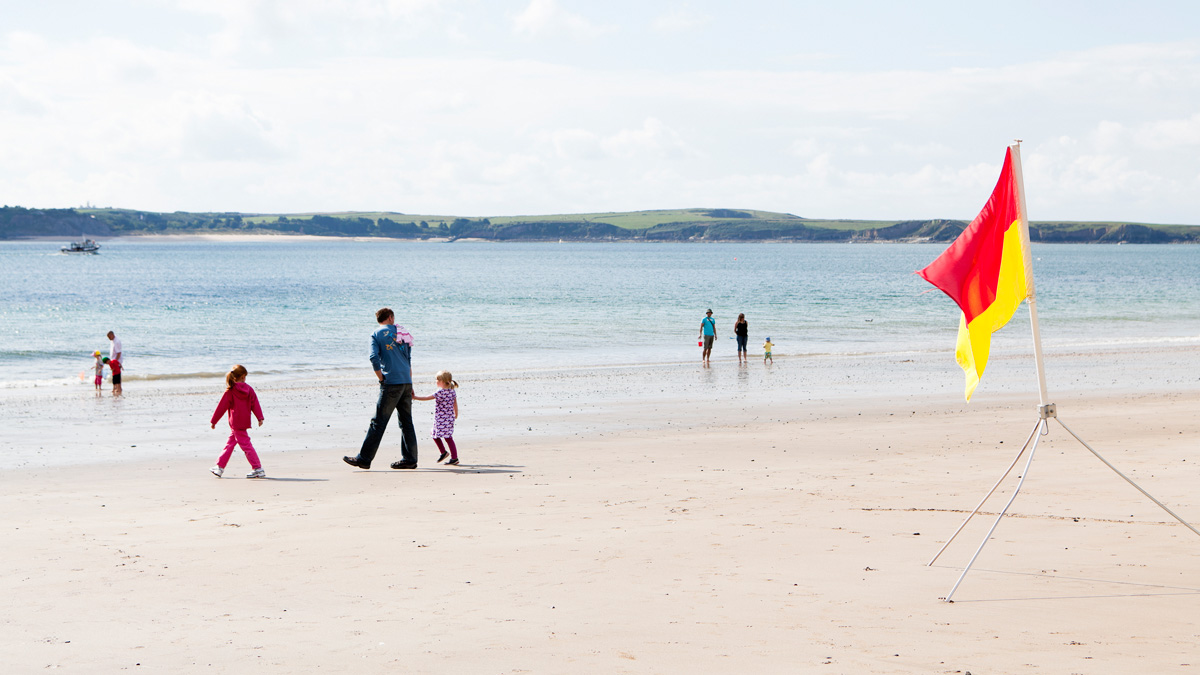
THE MARINE CONSERVATION SOCIETY’S latest report has revealed a troubling rise in litter on Welsh beaches, with drinks-related waste present on 99% of those surveyed.
The charity’s annual State of Our Beaches 2024 report highlights that glass bottles were found on almost half (49%) of the surveyed beaches in Wales. The findings have prompted calls for the Welsh Government to introduce a Deposit Return Scheme (DRS) that includes glass, aligning with the rest of the UK.
Growing problem of beach pollution
In 2024, volunteers conducted 119 surveys across Wales, marking an 8% increase from the previous year. A total of 1,073 volunteers participated in the Marine Conservation Society’s beach clean programme, recording all litter found along 100-metre sections of coastline. The data, collected over 30 years, helps the charity identify pollution trends and advocate for cleaner seas.
On average, 120 litter items were recorded per 100-metre stretch—an increase of 4% from 2023—suggesting the problem of beach pollution is far from solved.
Call for urgent action on deposit scheme
The report found an average of 10 drinks-related litter items—including cans, plastic bottles, and glass bottles—per 100-metre section. With drinks-related waste appearing on nearly every surveyed beach, the Marine Conservation Society is urging the Welsh Government to implement a DRS that includes glass.
Elise Lavender, Parliamentary Affairs Officer for Wales at the Marine Conservation Society, said: “We support the introduction of a Deposit Return Scheme in Wales that includes glass and allows reuse. We are calling on the Welsh Government to implement this as close as possible to the UK-wide scheme launch in October 2027. Bringing this forward will help ensure a smoother transition, improve recycling efforts, and contribute to a more sustainable future for Wales.”
Glass bottles pose a growing threat
A total of 175 glass bottles were collected by volunteers, with glass litter recorded on almost half of the beach cleans. The Marine Conservation Society’s data indicates that glass waste on beaches is increasing, with 2024 ranking as the ninth highest year for glass litter since records began 31 years ago. Broken glass poses a serious threat to both marine life and beachgoers, with sharp edges causing potential injuries.
With the presence of drinks-related litter so widespread, the Marine Conservation Society says its data highlights the urgent need for a DRS in Wales to reduce waste and encourage a culture of reuse and recycling.
Success of deposit schemes in other countries
Under the proposed DRS, consumers would pay a small deposit when purchasing drinks, which they would receive back upon returning the empty container to a collection point. Similar schemes have seen success in countries such as Finland, Lithuania, and Sweden. Ireland’s recent introduction of a DRS has led to an 80% reduction in drinks-related litter per kilometre of beach, demonstrating the potential impact of such a system in Wales.
While England, Scotland, and Northern Ireland are set to roll out a UK-wide DRS in October 2027, Wales has chosen to develop its own version, which will include glass containers.
Lottery funding supports clean-up efforts
For the past decade, players of the People’s Postcode Lottery have helped fund the Marine Conservation Society’s beach cleaning initiatives.
Laura Chow, Head of Charities at the People’s Postcode Lottery, said: “Beach cleans are about more than just removing litter. The information collected by Marine Conservation Society volunteers contributes to valuable datasets identifying pollution sources and trends over time so we can all take action to reduce marine pollution and protect our seas.
“I’m delighted funding raised by players of Postcode Lottery is supporting beach cleans, where every piece of litter collected and recorded brings us a step closer to healthier oceans.”
How to get involved
Those interested in joining a beach clean or organising their own event can find more details on the Marine Conservation Society’s website.
Community
Princess of Wales praised for ‘skill’ during local wool mill and factory visit

Royal tour shines spotlight on west Wales textile heritage and local jobs
CATHERINE, Princess of Wales was told “she’s got the skill” after trying her hand at traditional textile work during a visit to west Wales on Tuesday (Feb 3).
The royal spent the day meeting staff and apprentices at two well-known manufacturers – Melin Tregwynt in Pembrokeshire and Hiut Denim in Cardigan – highlighting the region’s long-standing reputation for craftsmanship and small-scale, high-quality production.
Stitching and mending at historic mill

At Melin Tregwynt, a family-run woollen mill that now operates as an employee-owned trust, the princess was guided through each stage of production, from weaving to finishing.
In the quality control room she was invited to mend a blanket using a needle and thread, carefully repairing the fabric under the watchful eye of experienced staff.
Paula Harding, who has worked at the mill for more than a decade, praised her technique, saying: “She did it right – and she didn’t go through the other side. That’s skill. She’s got the skill.”
Laughing, the princess told workers: “You make it look so easy,” adding that the craft was clearly “a labour of love”.
She asked questions about the history of the business, which has produced Welsh-designed blankets and throws for more than a century, and spoke with several generations of the same families who have worked at the mill.
‘Made in Wales’ denim

Later, the princess travelled to Hiut Denim, the Cardigan-based firm credited with bringing jeans manufacturing back to the town after large factories closed in the early 2000s.
The company now focuses on small-batch, premium denim and employs skilled cutters and machinists locally.
During a tour of the factory floor, the princess tried cutting out a pair of jeans and helped stitch a “Made in Wales” label onto a finished pair that staff said would be presented to the Prince of Wales.
“He will love those,” she replied.
She joked that there was “no pressure” when handed the cutting tools and said she enjoys making clothes herself, admitting the most adventurous project she had attempted was sewing a pair of pyjamas.
The royal also stopped to greet Barney, the factory’s English cocker spaniel, drawing smiles from staff.
Meeting well-wishers

Crowds gathered outside both sites to catch a glimpse of the visitor, with the princess spending time chatting with families and children before moving on.
The visit forms part of ongoing efforts by the royal household to showcase traditional industries and skilled manufacturing across the UK, with west Wales’ textile sector recognised as a key part of the region’s heritage and economy.
For workers at both businesses, the message was simple: the spotlight on locally made products and homegrown skills was just as important as the royal presence itself.

Community
Cleddau at heart of major water reforms as ministers promise ‘fundamental reset’
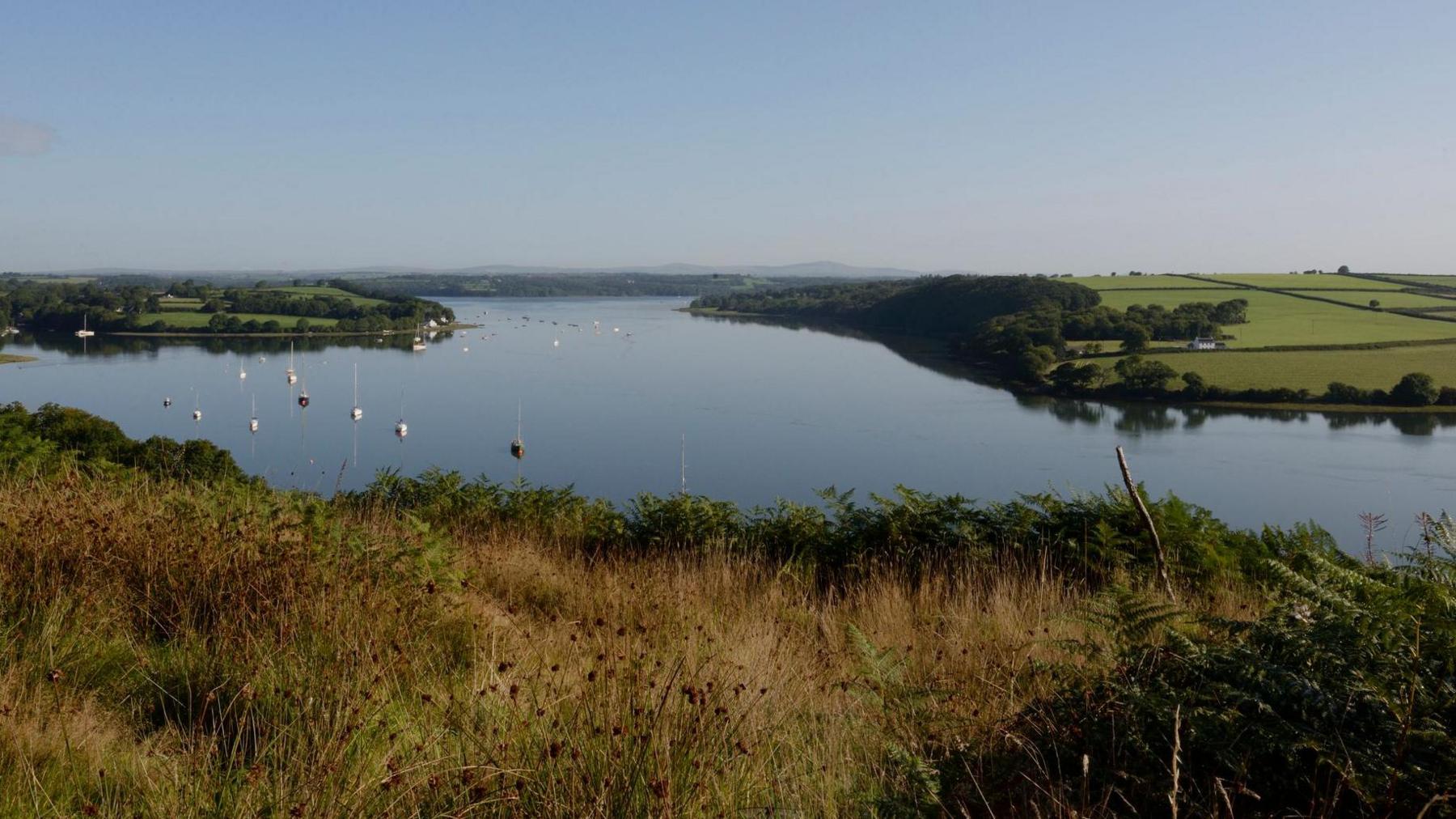
New regulation plan aims to tackle pollution, sewage spills and ageing infrastructure
COMMUNITIES along the River Cleddau could see tighter controls on pollution and stronger oversight of water companies after ministers unveiled what they describe as a once-in-a-generation shake-up of how Wales’ water system is run.
The Welsh Government this week published a Green Paper promising cleaner rivers, tougher enforcement and a new Welsh economic regulator dedicated solely to the water sector.
Deputy First Minister Huw Irranca-Davies said it was time for a “fundamental reset” to rebuild public trust, warning that ageing infrastructure, climate pressures and growing concern about water quality meant the current system was no longer fit for purpose.
For Pembrokeshire residents, those words land close to home.
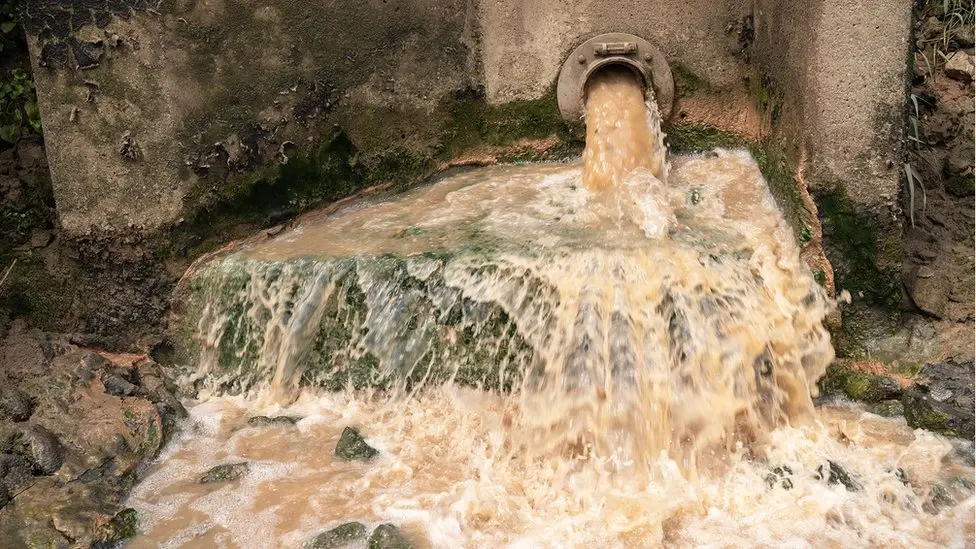
Local frustration growing
From Haverfordwest down to Milford Haven, the Cleddau is both a working waterway and a natural asset, supporting wildlife, leisure users, anglers and tourism businesses.
But in recent years there have been repeated complaints about sewage overflows, murky water after heavy rain and nutrient pollution washing in from across the catchment.
Storm discharges and wastewater treatment are the responsibility of Dŵr Cymru Welsh Water, while environmental enforcement sits with national regulators. Many locals say neither has acted quickly enough when problems arise.
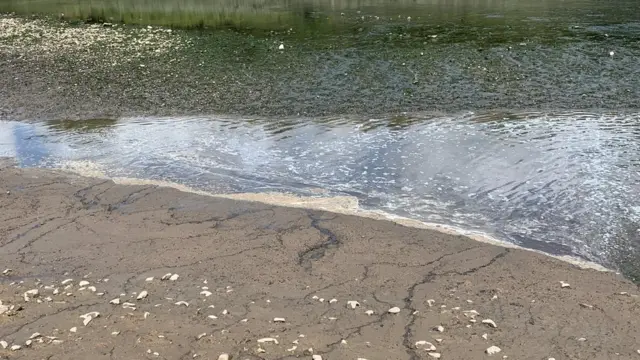
Residents and river users have told The Herald they feel the estuary is “worse than it used to be”, particularly after periods of wet weather when combined sewer overflows can activate.
Concerns range from the impact on fish stocks and birds to whether the water is safe for paddleboarding, sailing and wild swimming.
What ministers are proposing
The consultation sets out plans to:
- create a new Welsh regulator focused on water
- strengthen monitoring and enforcement
- drive investment in ageing pipes and treatment works
- improve transparency and accountability
- support long-term environmental protection
Since 2022, the government says it has invested more than £56 million tackling water quality through enforcement, monitoring and nature-based solutions. A further £5 million has been earmarked next year specifically for river and coastal improvements.
Ministers say the changes should make it easier to fine or sanction poor performance and force faster upgrades where infrastructure is failing.
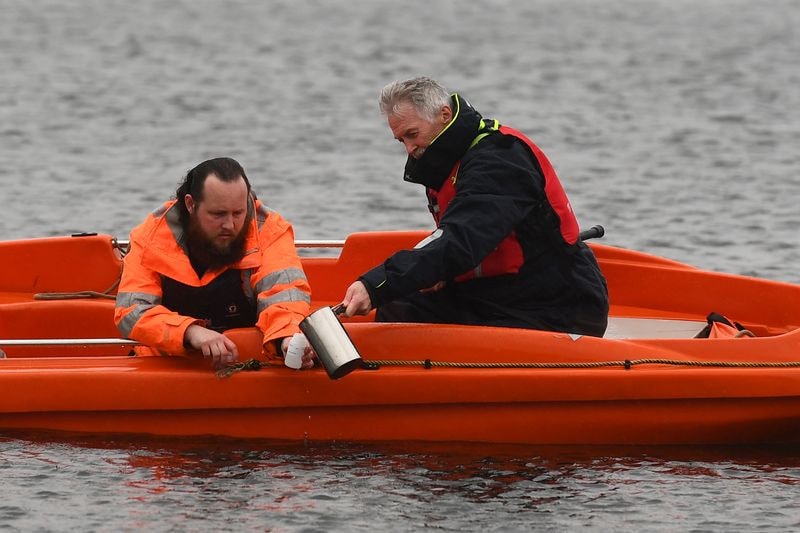
Why the Cleddau matters
The Cleddau catchment is one of west Wales’ most important waterways.
It feeds into the Milford Haven Waterway, a key centre for industry, energy, fishing and recreation, while also providing habitat for protected wildlife and drawing thousands of visitors each year.
Any decline in water quality has knock-on effects not just for nature but for jobs and the local economy.
Campaigners argue that without tougher oversight and sustained investment, the river risks long-term damage.
Consultation open
The Green Paper is now out for public consultation, with ministers inviting views from residents, businesses and community groups.
For many in Pembrokeshire, this may be a rare chance to push for specific improvements on their doorstep — from fewer sewage discharges to better monitoring of agricultural runoff and clearer reporting when incidents occur.
If the promised “reset” is to mean anything locally, it will be judged on one thing: whether the Cleddau actually gets cleaner.
The consultation is open on the Welsh Government website, and submissions can be made by individuals as well as organisations.
Community
Cilgerran Church in Wales school petition to be heard

A PETITION opposing proposed changes for a north Pembrokeshire school is to be heard by councillors later this week.
At last May’s meeting, Pembrokeshire County Council considered a report of the School Modernisation Working Group which outlined the findings of a review of education provision in the Preseli area.
A later July meeting backed a general consultation to discontinue Cilgerran Church in Wales Voluntary Controlled School, and to establish it as a 3-11 community school.
“In particular, the review considered the extent of surplus school places in the area, set against a significant decline in the pupil population,” the council in its consultation has said.
The consultation closed on January 30.
Hundreds have opposed the proposed changes, with a petition, on the council’s own website opposing the changes recently closing after gaining 391 signatures.
Any petition of more than 100 signatures triggers a debate at one of the council’s scrutiny committees, in the case of Cilgerran that debate taking place at Pembrokeshire County Council’s February 5 schools and learning overview and scrutiny committee.
The Cilgerran e-petition, created by Louise Williams, raised concerns including the school could become part of a federation, a loss of permanent head teacher on site, a shared head teacher would have to oversee several schools, loss of funding control and the ability to maintain the school’s current healthy and stable funding, and a loss of commitment to the church, in turn could impact on the school’s and pupils values, beliefs and cultural beliefs.
It said: “Ysgol Cilgerran VC school has strong links with the Church community in Cilgerran and we believe this will have a negative impact on the children who attend the school, the community of Cilgerran and the links between the two.
“We are proud of our school ethos and values which are strengthened by our links with the church. The school has close and strong relationships with our Church in Wales federation governors one of which is also our safeguarding governor.
“Our Church Federation governors work closely with the school and are regular visitors to the school and the children. They provide vital support and guidance to the school and have a positive impact on the Children’s education. We believe these links will be weakened by this proposal to remove our VC status and we believe this is an un-necessary action.”
The proposals for Cilgerran are part of a wide range of potential education changes in the county.
Two petitions, opposing the potential closures of Manorbier and Ysgol Clydau schools, were recently heard at full council and a further petition opposing the potential closure of Stepaside School has recently been launched, which has generated enough support to be heard at a future council meeting.
-

 Health6 days ago
Health6 days agoConsultation reveals lack of public trust in health board
-

 News7 days ago
News7 days agoCaldey still unsafe, survivors warn — despite Abbey’s reform claims
-

 Community6 days ago
Community6 days agoPembrokeshire students speak at national Holocaust Memorial Day event
-

 News17 hours ago
News17 hours agoPrincess of Wales visits historic Pembrokeshire woollen mill
-

 News7 days ago
News7 days agoKurtz raises Gumfreston flooding in the Senedd as petition deadline nears
-

 Crime4 days ago
Crime4 days agoPembroke man accused of child sex offences sent to Swansea Crown Court
-

 Education7 days ago
Education7 days ago‘Vulnerable teen’ questioned by police at Milford Haven School
-

 Education7 days ago
Education7 days agoAttendance concerns at Milford School reflect wider issue raised at the Senedd





























